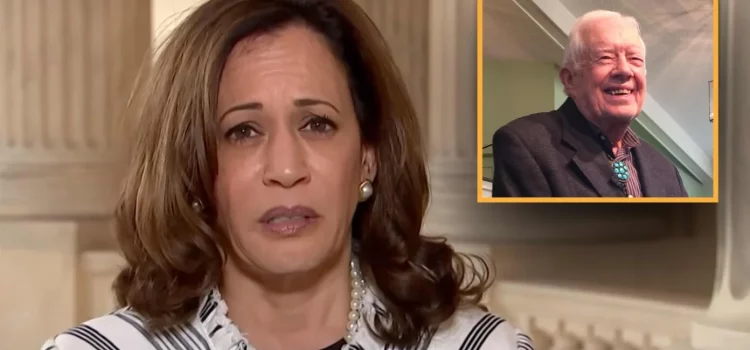
Jimmy Carter’s Hospice Journey: A Case Study in Grace
The choice of hospice care made by Jimmy Carter reflects a deep personal grace and humility that has characterized his public and private life. Hospice, a form of care designed to offer comfort and support to those nearing the end of their lives, is often misunderstood. Yet, in choosing this path, Carter has highlighted its value, bringing it into the public consciousness with a sense of dignity and peace. His journey underscores the importance of facing life’s final chapter with courage and acceptance, values that can guide us all.
The lessons from Jimmy Carter’s journey are profound, emphasizing the intrinsic value of dignity at every stage of life. Hospice care, with its focus on palliative rather than curative treatments, embodies this principle by prioritizing the patient’s comfort and quality of life. Carter’s decision serves as a powerful example of how to approach the end of life with a sense of purpose and peace, leaving a legacy that transcends his many achievements.
The Importance of Advance Care Planning: Insights from Jimmy Carter’s Experience

Advance care planning is a critical component of end-of-life care, emphasizing preparedness and peace of mind for both the patient and their loved ones. Jimmy Carter foresight in planning for his own care reflects a pragmatic and thoughtful approach to life’s final stages. By making his wishes known ahead of time, Carter ensured that his values and preferences would guide his care, highlighting the importance of dignity even in vulnerability.
His hospice journey underscores the value of dignity in life’s final stages, serving as a reminder that end-of-life care is not about giving up but about living one’s remaining days with grace. This approach to care planning can provide comfort to families and patients alike, ensuring that decisions are made in alignment with the patient’s wishes and reducing the burden of uncertainty during a challenging time.
Family Dynamics and Decision Making in Hospice Care
The dynamics of Jimmy Carter’s family have undoubtedly influenced the decisions surrounding his hospice care. The involvement of family in these decisions reflects Carter’s values and the legacy he wishes to leave behind. Hospice care, by nature, is a family-centered approach, recognizing the importance of loved ones in the patient’s journey. Carter’s choice demonstrates the value he places on family and their role in supporting him through this final chapter.
Decision-making in hospice care, as illustrated by Carter’s experience, is deeply personal and reflective of one’s values and beliefs. It is a testament to the strength of character and the legacy of compassion and respect for individual dignity that Carter has championed throughout his life.
The Influence of Public Figures on Health Care Choices

Public figures like Jimmy Carter have a unique ability to shape perceptions and attitudes toward health care choices, including end-of-life care. By choosing hospice care and sharing his decision publicly, Carter has highlighted the value and accessibility of this type of care. His journey serves as an educational moment, encouraging a broader conversation about the nature of hospice care and its role in providing a dignified end-of-life experience.
The visibility of Carter’s choice can help demystify hospice care, making it a more accessible option for individuals and families facing similar decisions. It underscores the importance of compassion, dignity, and respect in care choices, values that are central to hospice philosophy.
Personalizing Hospice Care: Lessons from Jimmy Carter’s Story
Jimmy Carter’s hospice care journey emphasizes the importance of personalized, patient-centered approaches. Hospice care, at its core, is about tailoring support and treatment to the individual’s needs and preferences, ensuring that the patient’s final days are lived according to their values and desires. Carter’s experience highlights the need for a customized approach to care, one that respects the patient’s wishes and provides comfort and support tailored to their unique situation.
Learning from Carter’s journey, it’s clear that advocating for hospice customization is crucial. Each person’s end-of-life experience is deeply personal, and the care they receive should reflect this individuality. This approach not only enhances the quality of care but also ensures that the patient’s dignity is upheld throughout their hospice journey.
The Intersection of Politics and Personal Health Decisions
The decision by Jimmy Carter, a prominent political figure, to enter hospice care brings into focus the intersection of politics and personal health decisions. His choice underscores the universality of such decisions, transcending political and public life to touch on the deeply personal aspects of dignity and care at the end of life. It is a reminder that, regardless of one’s public stature, the values of dignity, respect, and compassion remain central to the human experience.
Carter’s journey also underscores the importance of dignity in end-of-life political discussions, encouraging a more humane and compassionate approach to health care policy. By sharing his decision, Carter invites a broader dialogue about the values that should guide our health care choices, both individually and as a society.
Educational Opportunities Stemming from High-Profile Hospice Cases
The visibility of Jimmy Carter’s hospice journey presents significant educational opportunities, particularly in the realm of compassionate care. By bringing attention to the principles of hospice care, Carter’s experience can inspire advancements in palliative care practices, emphasizing the importance of patient-centered, compassionate approaches. This high-profile case can serve as a catalyst for discussions about how to improve end-of-life care, ensuring that dignity, comfort, and respect are at the forefront.
Exploring palliative care advancements inspired by Carter’s experience is essential for evolving our approach to end-of-life care. His journey can inform educational initiatives for healthcare professionals, caregivers, and the public, highlighting the value of compassion and dignity in every aspect of hospice care.
Navigating the Emotional Landscape of Hospice with Loved One

Understanding emotional resilience is crucial in navigating the hospice journey with loved ones. Jimmy Carter’s choice to enter hospice care, made with the support of his family, highlights the importance of this support network. It is a profound reminder of the emotional strength required to face the end of life with grace and acceptance.
Carter’s decision also emphasizes the importance of family in hospice care, showcasing how loved ones play a pivotal role in providing comfort and support. This aspect of hospice care is essential, as it not only aids the patient in their journey but also helps families come together, sharing in the love and memories that define a lifetime.
Fostering a Culture of Care and Compassion in End-of-Life Situations
Finally, Jimmy Carter’s hospice choice underscores the importance of fostering a culture of care and compassion in end-of-life situations. By choosing hospice care, Carter has brought to light the value of patient comfort and dignity, principles that should guide our approach to end-of-life care. Learning from his journey, it’s clear that prioritizing these values can transform the experience of those nearing the end of their lives, offering a path filled with grace, peace, and respect.
In conclusion, Jimmy Carter’s hospice journey offers profound lessons on the nature of dignity. And grace in the face of life’s final chapter. His decision, made with humility and foresight, not only reflects his personal values. But also serves as a guiding light for individuals and families navigating similar paths. Through his experience, Their reminded of the importance of patient-centered care. But the value of family support, and the enduring significance of living one’s final days with dignity. As we reflect on Carter’s legacy, let us carry forward the lessons of his journey, fostering a culture of compassion and care in every aspect of life.










